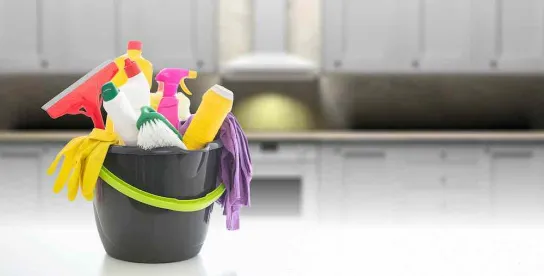-
What Happened: Citing recently revised CDC guidance suggesting that the risk of surface transmission of the SARS-CoV-2 virus is “generally considered to be low,” EPA announced that it is no longer expediting review of new registrations or claims for products intended to inactivate SARS-CoV-2 on surfaces. Instead, EPA indicated that it will shift resources to the evaluation of products that kill airborne SARS-CoV-2, as well as to meeting “critical deadlines” in the registration and review of all pesticide products within its purview.
-
Who’s Impacted: Manufacturers, distributors, and importers of all FIFRA-regulated products.
-
What Should Companies Do in Response: Consider how EPA’s newly revised priorities may impact registration actions for all pesticide products. Be aware that EPA’s focus on products that make airborne antiviral claims may also be accompanied by greater enforcement attention.
-
By When: As soon as possible.
In response to the COVID-19 pandemic’s spread in early 2020, the U.S. Environmental Protection Agency (EPA) began implementing a series of policies to prioritize and expedite review of surface disinfectant products intended for use against SARS-CoV-2, the coronavirus that causes COVID-19. EPA’s efforts also included steps to minimize disinfectant supply chain disruptions and develop new approval pathways for “long-lasting” antiviral disinfectants and coatings. Since March 2020, EPA has added over 500 disinfectant products to its List N of products effective against SARS-CoV-2.
Earlier this month, however, the Centers for Disease Control and Prevention (CDC) issued an update concerning the surface transmission of SARS-CoV-2, in which it concluded that SARS-CoV-2 infections primarily occur through respiratory exposure to airborne droplets, and that the risk of surface transmission is low. While continuing to recommend surface disinfection in indoor community settings where there has been a suspected or confirmed case of COVID-19 within the last 24 hours, the new CDC guidance suggests that, “in most situations, cleaning surfaces using soap or detergent, and not disinfecting, is enough to reduce risk.”
Citing this new information, and noting that hundreds of EPA-registered surface disinfectants are now available to the American public, EPA announced that it will no longer prioritize or expedite registration activities related to surface disinfectant products. While acknowledging that disinfectants “continue to serve as one of many important tools in the fight against COVID-19 where needed,” EPA confirmed that it will now review registration requests for new surface disinfectants for SARS-CoV-2 via its standard FIFRA registration process and associated deadlines. EPA will also continue to update List N as disinfectant products with new SARS-CoV-2 claims are approved.
In its announcement, EPA explained that this change will allow it to shift resources “to meeting critical deadlines in the registration and review of all pesticide products within its purview.” Significantly, EPA also indicated that it will continue “to follow the evolving science of the pandemic” by shifting resources to the evaluation of “novel” products, such as those that kill airborne SARS-CoV-2.
While EPA did not identify any particular products under evaluation, in recent months EPA appears to have been applying greater scrutiny to products that claim to use ultraviolet (UV) radiation to destroy or reduce viruses. Many UV disinfection lamps and air purifiers that may claim to mitigate airborne viruses by physical or mechanical means are regulated under FIFRA as pesticide devices. While EPA does not typically review efficacy data for pesticide devices, a device may be “misbranded”—and thus unlawful to be marketed—if its labeling or other marketing materials include general or specific efficacy claims that are “false or misleading in any particular.” The producers or sellers of any such devices are responsible for meeting all FIFRA regulatory requirements, including the requirement to ensure that their products perform as claimed.
More broadly, EPA’s announcement also appears to be consistent with recent FIFRA enforcement actions related to products that make airborne antiviral claims. In October 2020, for example, EPA announced one of its largest-ever FIFRA civil settlements (nearly $7 million) in connection with the import of household appliances with unregistered antimicrobial-treated air filters.






 />i
/>i

